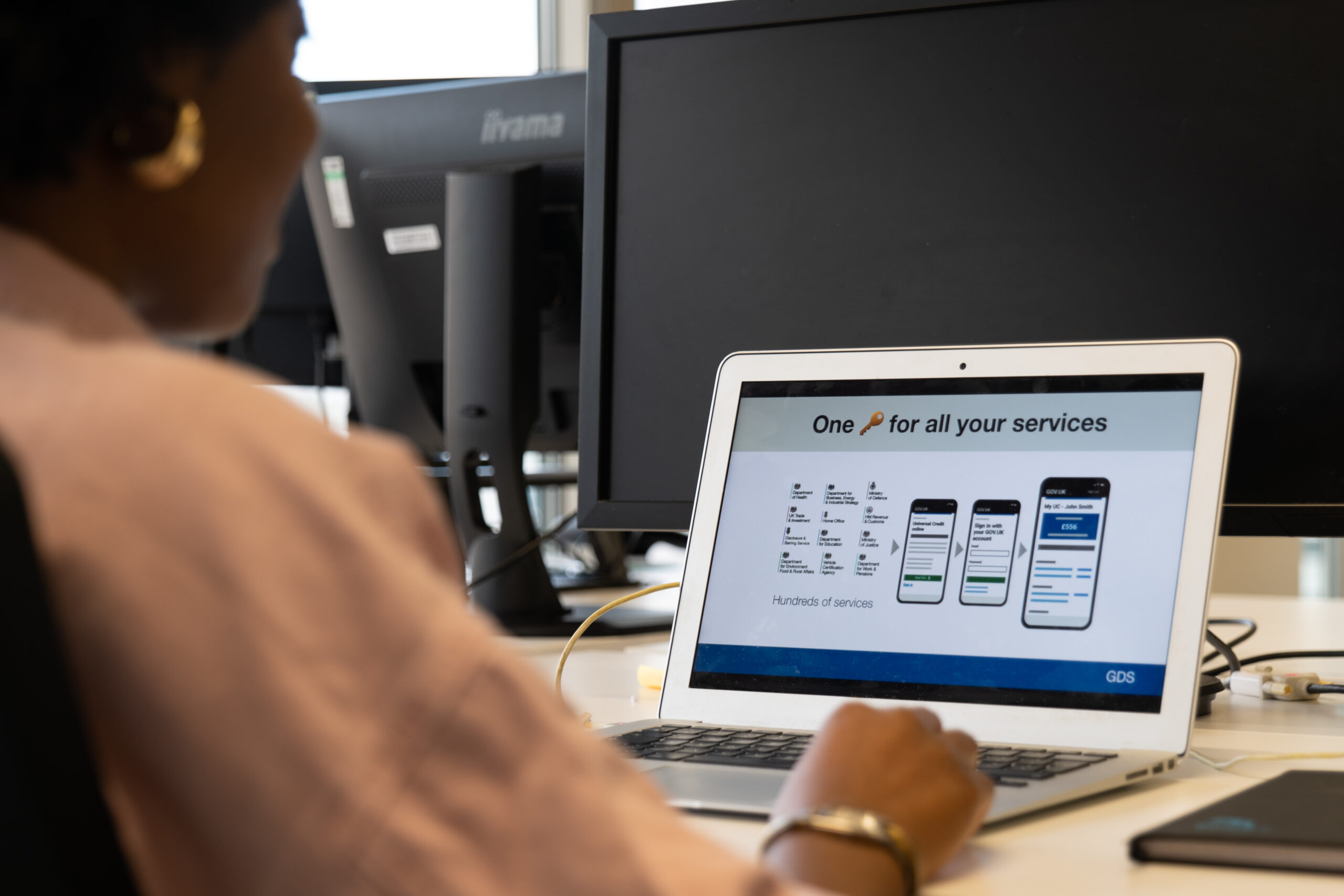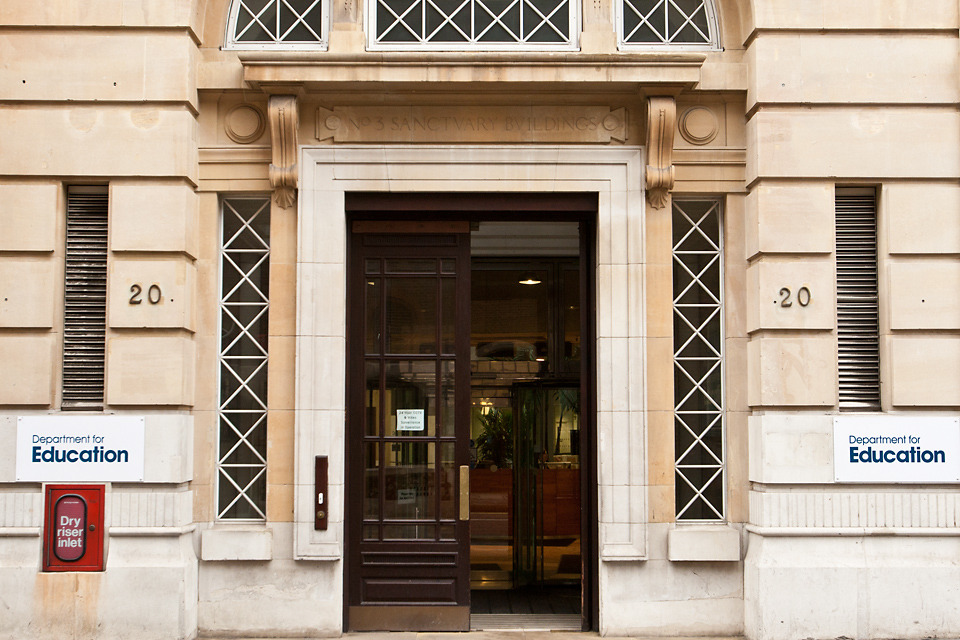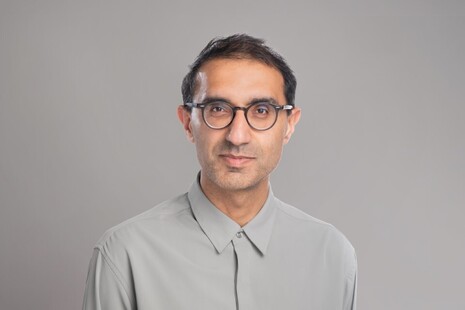A dedicated group – featuring representatives from organisations including Privacy International and Big Brother Watch – has been formed to hold to account government’s identity programme on issues of privacy and inclusivity
The Government Digital Service has convened a dedicated group of academics and civil society representatives to oversee work on the One Login programme and advise of issues of privacy, accessibility and inclusivity.
The One Login Inclusion and Privacy Advisory Group (OLIPAG) was formed late last year from the merger of two bodies which previously advised government on similar areas: the Privacy and Consumer Advisory Group; and the Privacy and Inclusion Advisory Forum.
The newly united group – which features 20 members from organisations including Privacy International, Big Brother Watch, Age UK, and Citizens Advice – met for the first time on 9 November.
According to OLIPAG’s recently created GOV.UK page, the group “aims to ensure that GOV.UK One Login maintains privacy for users and is an inclusive and accessible service” by enabling members to “provide independent guidance, feedback and analysis on various aspects of the GOV.UK One Login programme as the number of users and services expands and new features are added”.
Although the merger has narrowed the focus of the advisory unit to the new government-wide login platform, the website adds that “OLIPAG’s expertise may be sought by other parts of GDS or wider government [and] members may also seek updates on topics relevant to digital identity from other parts of government”.
The group – which is co-chaired by Edgar Whitley from the London School of Economics and Louise Bennett from the Digital Policy Alliance – is intended to meet roughly on a quarterly basis. Members are expected to take part in at least half of these meetings, which will also be attended by at least one senior manager working on the One Login programme.
Related content
- HMRC to begin migrating ‘small numbers’ of Government Gateway users to One Login shortly
- GOV.UK One Login expected to cost £305m – and deliver £1.75bn benefits, data reveals
- One Login: GDS spends £20m on duo of deals for software and security support
The newly published minutes of the group’s initial meeting indicate that 14 GDS employees were in attendance, alongside eight board members.
The document reveals, with the group now focusing solely on a new technology on an ongoing major government project, a new ‘code of conduct’ has been introduced – including a stipulation that, in some specified cases, members will be party to information “that is marked as sensitive and not for onward sharing [and thus] cannot be shared outside of OLIPAG”.
During the November meeting, GDS officials provided group members with a presentation on its “user segmentation work… to baseline coverage of the programme [and] estimate how many people in the UK population can use [One Login] overall, and each of the user groups accessing each route” of proving your identity and creating an account. As part of this work, the digital unit plans to measure how various factors might impact the ability to access the login tool across differing groups of users.
This is likely to include exploration of the implications for the estimated 10% of the UK population that cannot prove their identity with a passport or driving licence. At OLIPAG’s next meeting, GDS staff will discuss with members plans for a “face-to-face identity-checking route” to be delivered at Post Offices.
Issues raised by members present at the initial meeting in relation to access issues experienced by different groups included a concern that “any users may seem to be ‘online’ but their families may have set them up and users are really not online” and that “many older people don’t always have more than the basic technical skills… and can often be concerned about putting personal information”, according to the minutes.
In addition to the co-chairs, the other 18 members of the group are:
- Margaret Ford, Consult Hyperion
- Sam Smith, Med Confidential
- Colin Griffiths, Citizens Advice
- Tom Fisher, Privacy International
- Lizzie Coles-Kemp, Royal Holloway, University of London
- Mariano delli Santi, Open Rights Group
- Silkie Carlo, Big Brother Watch
- Gavin Freeguard, Open Data Institute
- Sally West, Age UK
- Chris Pounder, Amberhawk
- Mark Durkee, Centre for Data Ethics
- Hannah Whelan, Good Things Foundation
- Nadine Trout, Rural Services Network
- Brendan Shepherd, Unlock
- Elizabeth Anderson, Digital Policy Alliance
- Helen Dobson, Citizens Online
- Swee Leng Harris, King’s College London
- Bryn Robinson-Morgan, Moresburg Ltd





You helped me a lot with this post. I love the subject and I hope you continue to write excellent articles like this.
https://madreviewer.tistory.com/tag/CTF20Loader20오류
벼룩시장 신문그대로보기 (구인구직, 부동산) 벼룩시장 신문그대로보기 바로가기 그리고 지역별 벼룩시장 종이신문그대로보기 방법 (구인구직, 부동산) 알아볼게요. 교차로신문 같이 벼룩시장은 지역별 일자리, 구인구직, 부동산 등 다양한 정보를 제공해요. 교차로신문그대로보기 바로가기는 아래에서 확인하고, 오늘은 벼룩시장 신문그대로보기 바로가기 그리고 사용법 섹스카지노사이트
안성출장마사지
이태원게이바
https://itgunza.com/654
I’m very happy to read this. This is the type of manual that needs to be given and not the accidental misinformation that is at the other blogs. Appreciate your sharing this greatest doc.
https://download-install.com/entry/ECA48CZoom-PCEBB284ECA084-EB8BA4EC9AB4EBA19CEB939C-EC84A4ECB998EC82ACEC9AA9EBB295
https://dday.tistory.com/946
https://download.beer/wp-content/uploads/2020/12/kakaotalk-logo-1-0x0.png
https://klero.tistory.com/entry/JTBC-온에어-실시간TV-무료시청-편성표
Mexican Easy Pharm: Mexican Easy Pharm – Mexican Easy Pharm
mexican online pharmacies prescription drugs https://mexicaneasypharm.shop/# Mexican Easy Pharm
medication from mexico pharmacy
mexico drug stores pharmacies https://mexicaneasypharm.com/# Mexican Easy Pharm
mexican pharmaceuticals online
https://kr.new-version.app/download/battle-net/
https://honeytipit.tistory.com/tag/돌싱글즈320다시보기
https://kakaotaxi.dasgno.com/kakao-pay
https://kakaotaxi.dasgno.com/kakao-pay
taya777 app taya777 app Live dealer games enhance the casino experience.
Gaming regulations are overseen by PAGCOR.: phmacao club – phmacao casino
The poker community is very active here. http://phmacao.life/# Promotions are advertised through social media channels.
https://tiptravel.tistory.com/44
https://tiptravel.tistory.com/32
Entertainment shows are common in casinos.: phmacao.life – phmacao casino
Players often share tips and strategies. https://taya777.icu/# Entertainment shows are common in casinos.
winchile casino win chile Los casinos celebran festivales de juego anualmente.
High rollers receive exclusive treatment and bonuses.: taya365 login – taya365
Casino visits are a popular tourist attraction. http://phtaya.tech/# Some casinos have luxurious spa facilities.
Slot machines attract players with big jackpots.: phmacao casino – phmacao club
taya365 com login taya365 com login Many casinos have beautiful ocean views.
Live music events often accompany gaming nights. http://phtaya.tech/# Many casinos host charity events and fundraisers.
https://jugabet.xyz/# Las mГЎquinas tragamonedas tienen temГЎticas diversas.
Casinos often host special holiday promotions.
Cashless gaming options are becoming popular.: taya365 login – taya365
Live music events often accompany gaming nights. https://jugabet.xyz/# Los torneos de poker generan gran interГ©s.
거제출장안마
jugabet casino jugabet casino Las tragamonedas ofrecen grandes premios.
Players must be at least 21 years old.: phtaya casino – phtaya casino
Casino visits are a popular tourist attraction. https://jugabet.xyz/# Los jugadores pueden disfrutar desde casa.
Online gaming is also growing in popularity.: phtaya.tech – phtaya casino
Poker rooms host exciting tournaments regularly. https://jugabet.xyz/# Los casinos ofrecen entretenimiento en vivo.
taya777 app taya777 login Players can enjoy high-stakes betting options.
La adrenalina es parte del juego.: jugabet.xyz – jugabet chile
Players can enjoy high-stakes betting options. https://jugabet.xyz/# La iluminaciГіn crea un ambiente vibrante.
Los casinos celebran festivales de juego anualmente.: winchile – winchile.pro
win chile winchile casino Las promociones atraen nuevos jugadores diariamente.
The gaming floors are always bustling with excitement. https://taya777.icu/# Casinos often host special holiday promotions.